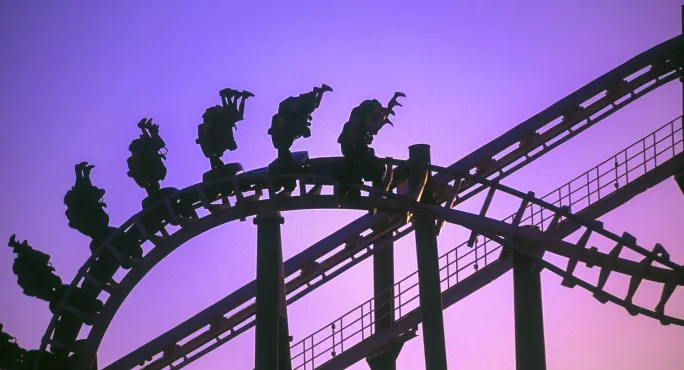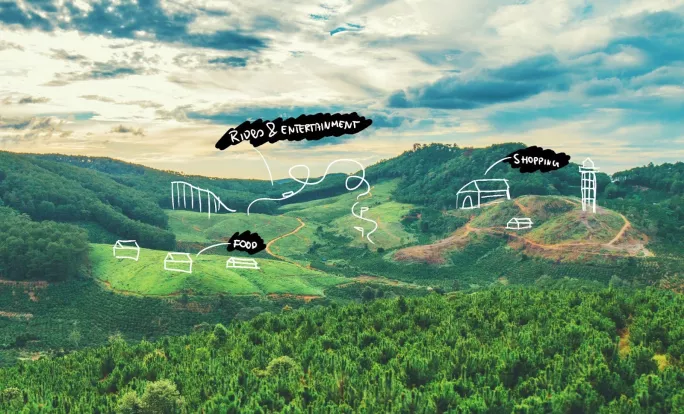Our need for a sustainable future has captured the spirit of young people across the globe. But what on earth do theme parks have to do with this? Bear with me...
In Scotland, as elsewhere, the Fridays for Future school strikes movement and the thousands of young people who marched in protest during COP26 in Glasgow showed us just how important this issue is to the next generation. As educators, our role must be to support and help guide their passion and commitment.
On 30 May the Scottish government published its consultation on the “circular economy” (it closes on 22 August). This is a method to cut waste and preserve precious resources through a better management system for waste products, which is intended to be a large part of our sustainable future as a nation.
To achieve this, we need big thinking about redesigning our communities and way of living - and a next generation that can take this forward. Only by thinking creatively about the facilities we need, designing access for them and doing that in the most sustainable fashion will we be able to find a way forward that achieves that and works for people.
The plan is that designing physical space for people to engage, promote a sharing economy and grow local produce will help the broader goal of a circular economy and reduce unnecessary waste.
So we asked young people to design that community space - through the eyes of a theme park designer.
Theme park designers create a world for people to exist in for the duration of their visit. They ask questions about the facilities needed, plan, design and curate a world that allows people to live happily inside it. It’s this power of design that we want young people to grasp: the ability to be the architect of their own world and use it to build a sustainable future.
Through a series of challenges set by Daydream Believers, and funded by the HCI Skills Gateway, we ask young people to imagine and design a theme park based on a forest’s ecosystem. They have to help reconnect people with nature and motivate humans to create futuristic spaces that do not harm the environment.
They are given a choice of three theme park aspects to focus on: rides and immersive experiences, catering facilities and services, or shopping and merchandise. They are then given an outline of circular economic principles for them to apply through problem solving to their designs.
To achieve our aim, we want to see this as a widespread teaching practice that can be recognised and replicated in the classroom. Establishing a Scottish Credit and Qualifications Framework (SCQF) level 5 and 6 creative thinking qualification, now piloted in 10 schools across Scotland, was a key step in doing that.
Through the custom-designed Stellar assessment app - which includes teaching young people to be good at testing, failure and fixing - we capture the diverse and varied learning in one structured way. By embracing the belief that learning from mistakes is a good thing, the model promotes learners to try again without fear of failure and builds their resilience for exploring new possibilities.
Our future depends on unleashing creativity, recognising its ability to inform decisions and giving learners the tools to design a sustainable way forward. The recent transformative experiences of pupils and teachers having completed the course confirms my belief in the opportunity we have.
Through collaboration across schools, as well as further and higher education sectors, we can use creativity to teach sustainability and the skills needed to implement the circular economy in every school and college.
When you commit yourself to a theme park ride, you’re buying into a sense of abandon and may be flying way beyond your comfort zone, quite literally - but at the end, you often want to go and do it all over again.
Seems like there’s more than just the one apt metaphor in there.
Helena Good is a director of Daydream Believers, Tes FE’s Teacher of the Year 2020 and a former Edinburgh College lecturer






